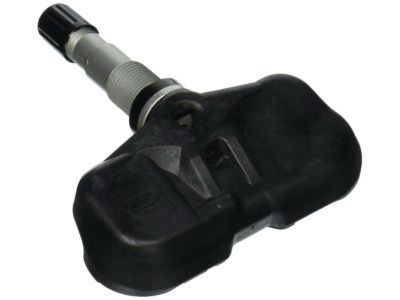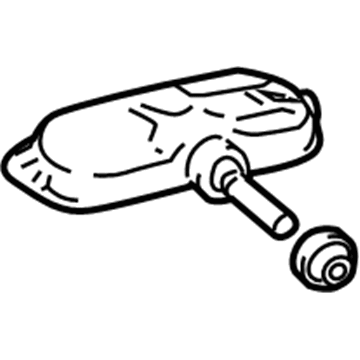×
ToyotaParts- Hello
- Login or Register
- Quick Links
- Live Chat
- Track Order
- Parts Availability
- RMA
- Help Center
- Contact Us
- Shop for
- Toyota Parts
- Scion Parts
My Garage
My Account
Cart
OEM 2009 Toyota Yaris TPMS Sensor
Tire Pressure Monitoring System Sensor- Select Vehicle by Model
- Select Vehicle by VIN
Select Vehicle by Model
orMake
Model
Year
Select Vehicle by VIN
For the most accurate results, select vehicle by your VIN (Vehicle Identification Number).
1 TPMS Sensor found
 Product Specifications
Product Specifications- Other Name: Valve Sub-Assembly, Tire; TPMS Sensor; TPMS Sensor Service Kit; Tire Pressure Sensor; Valve Stem; Tire Sensor; Pressure Sensor; Pressure Valve; Sensor
- Replaces: 42607-34020, 42607-52030, 42607-35030, 42607-52010, 42607-33010, 42607-33011, 42607-35010
- Condition: New
- SKU: 42607-33012
- Warranty: This genuine part is guaranteed by Toyota's factory warranty.
2009 Toyota Yaris TPMS Sensor
Looking for affordable OEM 2009 Toyota Yaris TPMS Sensor? Explore our comprehensive catalogue of genuine 2009 Toyota Yaris TPMS Sensor. All our parts are covered by the manufacturer's warranty. Plus, our straightforward return policy and speedy delivery service ensure an unparalleled shopping experience. We look forward to your visit!
2009 Toyota Yaris TPMS Sensor Parts Q&A
- Q: How to install the TPMS Sensor and transmitter correctly on 2009 Toyota Yaris?A: For valve and transmitter installation feed the device through the rim from its inside portion until you can see the printed area. First inspect the valve and transmitter for any damages and abnormal shapes while confirming that the grommet along with the rim hole area is free from foreign objects. When the valve and transmitter are placed in the wrong orientation it produces harm to both components as well as preventing signal transmission during rapid operations. Note down the ID number during new valve and transmitter installation because post-installation ECU registration is required. Position the new washer from the rim side and apply torque on the new nut to 4.0 Nm (41 kgf-cm, 35 in-lbf) while making sure that additional tightening is not necessary after reaching the specified torque value. Inspection of the washer and nut should happen while checking for foreign material before replacing the grommet and taking steps to eliminate lubricant-containing substances from around the rim hole and washer and nut region to prevent improper assembly. Set the wheel disc inside the mounting machine then apply the lower tire bead while placing the main valve body and transmitter in designated shaded space which must avoid the tire bead. Position the upper bead into place while making sure the tool and tire bead avoid the valve and transmitter components. Change the value nut torque to 4.0 Nm (41 kgf-cm, 35 in-lbf) and confirm no air leaks with soapy water after the tire is inflated. Aft and front wheel installations require a torque setting at 103 Nm with equivalent torque application at the rear wheel. Check the tires then note the transmitter ID according to requirements before testing the tire pressure warning system for its proper operation.













